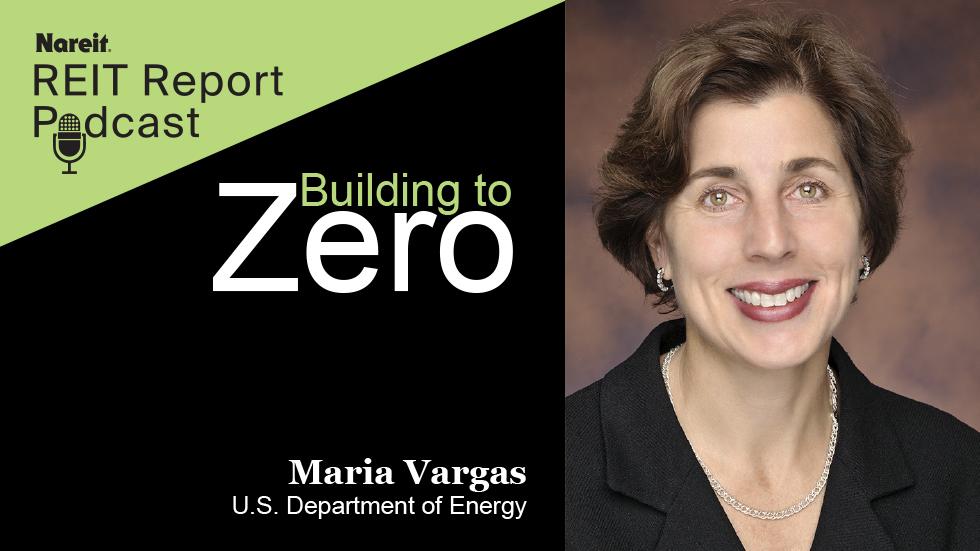
This episode of the REIT Report’s ongoing series “Building to Zero” features Maria Vargas, senior program advisor and director of the Better Buildings Initiative for the U.S. Department of Energy, and focuses on how success, solutions, and challenges are being addressed at the industry level.
Vargas shared her perspective on the importance of industry collaboration over her career, which includes 25 years at the Environmental Protection Agency and the past 13 years at DOE. She shares how the Better Buildings Initiative was designed to serve as a platform to drive and accelerate the adoption of energy efficiency and other decarbonization.
“What we recognize is that we spend about $200 billion a year to run our commercial buildings in this country. We spend, on average, about another $200 billion on our industrial facilities. And we know that, on average, 20% to 30% of that energy is wasted.”
Since 2011, over 400 leading organizations have participated in the Better Buildings Challenge to set aggressive portfolio-wide goals to advance energy efficiency, and to share how they were able to overcome some of the common barriers. She shares how the program has evolved into the Better Climate Challenge, which asks organizations to set a portfolio-wide goal of at least 50% greenhouse gas reduction for scope 1 and scope 2 and to share actions that they're pursuing in the buildings and plants and homes that they control now.
Vargas shares that the Better Building Solutions Center website houses all of the resources shared by challenge participants, so building owners can search for a specific challenge or barrier. “Our role at DOE was not only to convene partners to exchange that kind of information but to help accelerate the work being done by partners and help them overcome the barriers.”
She shares the DOE National Blueprint, which was recently announced at the Better Buildings Summit, which defines a path to reduce greenhouse gas emissions from U.S. buildings by 65% by 2035 and 90% by 2050.